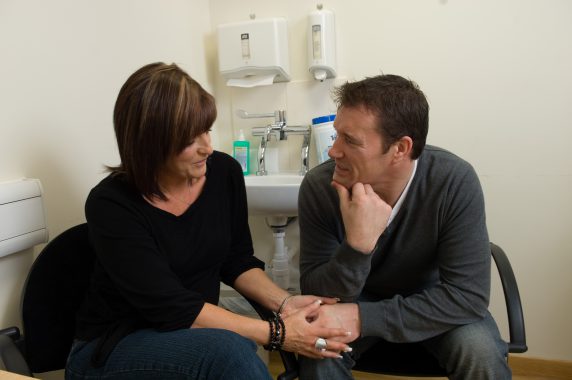IAPT self-referral system biased against low income patients, research suggests

Having to self-refer for psychological therapies can be a substantial barrier for patients on low incomes, researchers have warned.
A small study which included recorded video consultations as well as interviews with GPs and patients, found that while GPs were keen on self-referral, patients saw it as an obstacle to them getting help and that they were not being taken seriously.
The research found that 40% of low-income patients who received a recommendation to self-refer did not follow through.
Researchers at the University of Exeter said GPs should be aware that for some patients, self-referral may be a step too far and doctors should consider doing the referral directly.
The ability to self refer to the Improving Access to Psychological Therapies programme was introduced after it was found that for some having to go through the GP was stopping them accessing the service.
Study leader Dr Felicity Thomas, a senior research fellow at the University of Exeter, said the self-referral approach has now become the norm for understandable reasons – not least of which is time constraints – but they found that 40% of the 80 low-income patients they talked to who received a recommendation to self-refer did not follow through.
The study was based on patients living in households where poverty-related challenges such as unemployment or low-paid work were experienced. Researchers recognised that the pattern may also be seen in higher-income groups, but that the principle of the self-referral system ‘exacerbates pressures on potentially vulnerable patients’.
The study said: ‘Whilst issues around self-referral may also apply to more affluent patient groups, it is likely that they are exacerbated when patients face barriers accessing basic resources e.g. phone, internet, and when people feel that their low income and societal status reduces their self-worth and sense of entitlement.’
The interviews highlighted basic practical problems such as having no access to the internet or phone credit but also that patients felt they were being fobbed off, the team reported in the Journal of Mental Health.
Dr Thomas said: ‘The idea of legitimacy is something that affects low-income groups more than other people. Just to go to the GP in the first place can take an enormous amount of courage particularly around mental health. People feel they are wasting GP time or the GP will make judgements about their lifestyle choices or poor decision making.
‘We are not trying to say GPs should refer everyone as that would be impossible, it’s just about recognising that there will probably be some people who are not in a place to be able to do that referral themselves.’
The research was part of the wider DeSTRESS project looking at the impacts of austerity and welfare reform on mental health and wellbeing in low-income communities. Along with the RCGP they have produced a series of training guides.
Dr Thomas added: ‘People from low-income backgrounds have to fight for everything, just to get basic things, and there are so many obstacles in their way and this just becomes another thing they have to fight for.’
Dr Rob Barnett, medical secretary of Liverpool LMC said he was probably in the minority but his current practice was to start the referral process for all his patients.
He said: ‘I do it and then they go away with a piece of paper and a telephone number they have to call. It is time-consuming but I do it because I can easily see it’s been done and because I feel if patients leave with a referral-type letter they are more likely to act on it than if you just tell them to go and Google it.
‘I know a lot of colleagues don’t do this. The patient still has to make a phone call but the difference is I have gone to the trouble of getting them into the system.’
But Dr Barnett added he does this for everyone and he doesn’t necessarily think the barriers are income-related.
‘If you’re depressed you’re depressed. There will be patients who don’t follow through despite everything but I feel confident that I’ve done everything I can.’
It follows the news that deprived areas have received six times more cuts to public health budgets than elsewhere in the country.
Pulse October survey
Take our July 2025 survey to potentially win £1.000 worth of tokens

Visit Pulse Reference for details on 140 symptoms, including easily searchable symptoms and categories, offering you a free platform to check symptoms and receive potential diagnoses during consultations.










